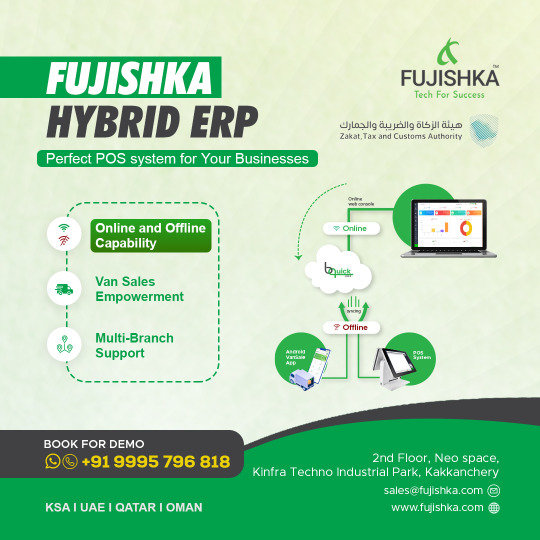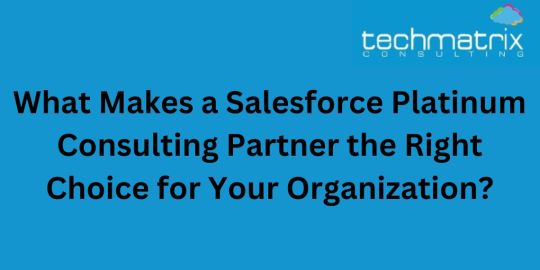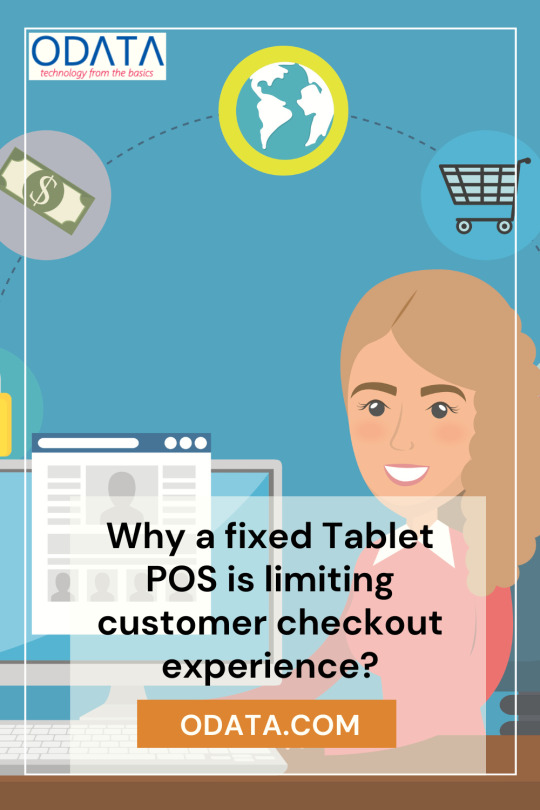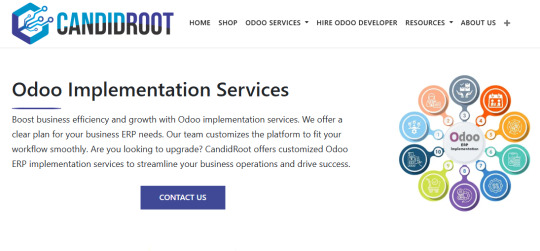#ERP System Implementation
Explore tagged Tumblr posts
Text

The blog explains how Frolick transformed its operations by adopting a customized ERP functional consulting services from Contetra. Initially, Frolick faced challenges with inefficient manual processes and fragmented systems that slowed down productivity. By implementing a tailored ERP system, the company was able to integrate its disparate functions, automate routine tasks, and achieve real-time reporting. This transformation not only streamlined operations but also empowered Frolick with the insights needed for faster, data-driven decision-making. Ultimately, the ERP implementation paved the way for improved operational efficiency and set the stage for sustainable growth and scalability.
#erp implementation consultants#erp functional consultant#erp functional consulting services#erp selection consultants#erp software#erp system#erp implementation#erp integration#erp system implementation
0 notes
Text
NetSuite Implementation
Being a skilled NetSuite implementation partner, our commitment to delivering quality services has been unwavering for more than 3 years. Over this time span, our team of dedicated professionals has continually honed their expertise, ensuring a depth of knowledge that goes beyond the surface level. As a NetSuite implementation partner, we pride ourselves on not just meeting but exceeding the expectations of our clients, fostering long-term relationships built on trust and success. Through our extensive experience, we have fine-tuned our approach, staying attuned to the evolving landscape of NetSuite solutions and best practices. Our enduring commitment to excellence positions us as a reliable and proven choice for businesses seeking a partner with a track record of successful NetSuite implementations.
2 notes
·
View notes
Text
Best cloud ERP software in Saudi Arabia

Best Cloud ERP in Saudi Arabia And Middle East
Fujishka Solutions is The best Hybrid ERP solutions
More Info: https://fujishka.com/
#erp systems#erp software uae#erp solution#erp implementation#ERP saudi arabia#saudi arabia#middle east#erp gcc
2 notes
·
View notes
Text
#retail pos solutions#erp for retail business#cloud retail erp software#retail pos software#retail pos system software#cloud it solutions#cloud based erp solutions#erp software solutions#business software solutions#software solutions company#Field Service Management Solution#erp for small business#cloud erp#erp implementation#erpcompany#erpdevelopment#canada#erpsolutions#sap erp#erp#erp software
2 notes
·
View notes
Text
#erp#erp software#erp system#erp implementation#erp solutions#cloud erp#erp integration#erpsolutions#erp for manufacturing#erp development company
0 notes
Text
Benefits of Odoo ERP Implementation for Growing Businesses
Odoo ERP is an integrated package which helps in managing the growth of businesses while bringing in all critical functions such as finance and operations, customer relationships or inventory availability. Its modular approach and cutting-edge modern technology make it the finest solution for business process streamlining, cost reduction, and scaling up of workflow in business. With Odoo ERP implementation, organizations can tap into the power of automation and data-driven decision-making to be ahead of others in today's competitive marketplace. Let us see each benefits in detail below.
#odoo#odoo erp implementation#odoo implementation#erp implementation#erpsoftware#erpdevelopment#erp#erp system
0 notes
Text
Best ERP Software Company in India
DiracERP delivers world-class ERP solutions for Furniture, Lighting, Home Décor, Home Essentials, Manufacturing, Supply Chain, and Service sectors—serving 250+ clients worldwide with seamless integration, efficiency, and sustainable growth. For more details, visit https://diracerp.com/
0 notes
Text
How ERP Increases Solar Panel Benefits in Production
The demand for solar panels is rising as consumers and businesses increasingly opt for solar energy to reduce carbon footprints and lower energy costs. However, the solar panel industry faces significant challenges, from fluctuating solar panel prices to inefficiencies in solar inventory management and production. The implementation of an ERP system for solar panel manufacturers is crucial in addressing these challenges and optimizing the entire solar system production process. ERP technology not only streamlines operations but also enhances solar panel manufacturing efficiency, paving the way for a greener future.
Overcoming Challenges in Solar Panel Manufacturing

The solar panel manufacturing process is complex and involves multiple stages, from sourcing solar products to ensuring compliance with regulatory standards. Without a centralized system, manufacturers often face delays and production bottlenecks, particularly in managing solar inventory, solar panel tracking systems, and supply chain inefficiencies. By implementing ERP systems for solar panels, manufacturers gain real-time visibility into inventory levels, improving resource allocation and eliminating unnecessary costs associated with production inefficiencies.
ERP systems also play a vital role in managing the fluctuating solar panel prices and controlling the cost of one solar panel. This allows manufacturers to optimize their operations and remain competitive in the dynamic solar industry. With integrated data, manufacturers can predict price trends, reduce operational costs, and maintain profitability even during challenging market conditions.
Enhancing Solar Panel Production Efficiency
Efficiency is key in solar panel manufacturing, and ERP systems help improve this by automating processes such as production planning, procurement, and inventory management. By integrating solar panel production schedules and real-time data, manufacturers can optimize solar panel solar panel production, reducing waste and improving throughput. ERP solutions also enhance solar panel tracking, ensuring the proper monitoring of solar system panels and facilitating seamless coordination between different production stages.
Automation tools within ERP software help manufacturers minimize human errors, cut down on time-consuming manual tasks, and improve overall solar efficiency. Additionally, by using photovoltaic panels or PV panels, manufacturers can improve product quality while reducing the cost of manufacturing solar panels for automobiles and other solar products.
Meeting Quality and Regulatory Standards with ERP
The solar industry faces strict regulations to ensure that all solar panels and solar products meet environmental and quality standards. ERP solutions integrate compliance tracking features that ensure each solar pv module adheres to these standards, reducing the risk of penalties and boosting the reputation of manufacturers. Moreover, the built-in quality control features ensure that only the best photovoltaic panels are produced, meeting customer expectations for performance and durability.
With a solar battery and solar tracking systems in place, ERP helps track the solar system's entire lifecycle, from raw materials to end-user delivery. This not only guarantees high-quality production but also supports manufacturers in providing recommended solar panels that are energy-efficient and aligned with latest solar panel technology.
Leveraging Data for Smarter Decision-Making
One of the most valuable features of an ERP system is its ability to provide actionable data. Solar panel manufacturers can harness the power of solar panel tracking system to gain insights into production trends, demand forecasts, and efficiency rates. By integrating solar tracking and solar solar panels data, manufacturers can optimize their operations and improve decision-making regarding the purchase of materials, production schedules, and supply chain management.
The data gathered from ERP systems also enables manufacturers to keep a close eye on the cost of one solar panel, ensuring that costs are minimized while maintaining high product quality. This capability is crucial as the cost of solar panels continues to fluctuate, and businesses need to stay agile in adjusting to market demands and prices.
The Future of ERP in Solar Panel Manufacturing
The solar panel industry is rapidly evolving, and new solar panel solar system technologies are transforming manufacturing processes. ERP systems are adapting by incorporating solar panel new technology, enabling manufacturers to track real-time data on the performance of solar system modules and solar panel solar system configurations. With the integration of IoT-enabled devices and AI-driven analytics, future ERP solutions will further enhance solar system solar panel monitoring and maintenance.
As solar photovoltaic panel manufacturers look toward the future, ERP will continue to play a pivotal role in improving production, lowering costs, and ensuring compliance with environmental and industry standards. ERP systems are not just an investment in technology—they are an investment in the future of solar panels and solar, paving the way for smarter, more sustainable manufacturing practices.
Conclusion
The solar industry stands at the brink of a major transformation, with ERP systems at the core of this change. By integrating ERP solutions into solar panel manufacturers operations, companies can enhance production efficiency, improve quality control, and reduce costs. Whether it’s managing solar inventory, tracking solar panels cost, or ensuring compliance with solar panel benefits, ERP systems offer unparalleled support to manufacturers. By embracing solar products and leveraging data for smarter decision-making, manufacturers can stay ahead of market shifts and ensure long-term success in the competitive world of solar energy.
#erp#erp software#erp system#techsolutions#erp implementation#erp services#erp solutions provider#innovation#technology#industry solutions#solar energy#solar panel#solar power#solar
0 notes
Text
The Importance of ERP Systems for SMEs and Retail Businesses

An ERP for SME is no longer a luxury but a necessity. Small and medium-sized enterprises face increasing complexities in managing operations, financials, and customer relationships. Implementing a tailored ERP system can streamline these processes, making businesses more efficient and competitive.
Discover more about how to select the best ERP for your SME by visiting ERP for SME.
Why Businesses Consider a Change of ERP Vendor
Choosing the right ERP vendor is critical for long-term success. However, businesses often find their current vendor lacks scalability, innovation, or customer support. Opting for a change of ERP vendor can offer new opportunities to modernize operations and integrate advanced features.
A change may include improved system performance, reduced operational costs, and enhanced reporting capabilities. If you're considering switching vendors, learn more at Change of ERP Vendor.
Best Practices for ERP Implementation in Singapore
ERP implementation is a significant undertaking that requires meticulous planning and execution. In ERP implementation Singapore, the focus is often on aligning the software with local business practices and compliance standards.
Key best practices include:
Conducting a detailed needs analysis.
Ensuring employee training for smoother transitions.
Regularly reviewing milestones to ensure project timelines.
A successful ERP implementation can improve productivity, customer satisfaction, and bottom-line results. For more insights, explore ERP Implementation Singapore.
Benefits of a POS Retail ERP System
Retail businesses operate in fast-paced environments where efficiency is key. A POS retail ERP system integrates point-of-sale functions with backend operations, streamlining everything from inventory to customer management.
Benefits of such a system include:
Real-Time Inventory Management: Track stock levels and reduce wastage.
Enhanced Customer Experiences: Provide personalized service with access to customer purchase histories.
Centralized Reporting: Consolidate data for better decision-making.
Retailers looking to stay ahead should explore the advantages of an integrated POS ERP system. Learn more at POS Retail ERP System.
Conclusion
Adopting the right ERP solution is vital for SMEs and retail businesses aiming to remain competitive in today’s market. Whether you're looking for an ERP for SME, planning a change of ERP vendor, or focusing on successful ERP implementation Singapore, the right approach can make a world of difference. Additionally, an integrated POS retail ERP system can provide a unified platform to enhance retail operations.
Take the first step toward optimizing your business by exploring these ERP solutions tailored to your needs.
0 notes
Text
What Makes a Salesforce Platinum Consulting Partner the Right Choice for Your Organization?
Salesforce is a powerful platform that can transform the way businesses manage customer relationships, automate processes, and improve efficiency. However, to unlock the full potential of Salesforce, it is essential to work with an experienced consultant who understands your unique business needs. A Salesforce Platinum Consulting Partner offers a wealth of expertise and proven capabilities to help you maximize the benefits of Salesforce, ensuring that your organization achieves its CRM goals. In this article, we explore the advantages of working with a Salesforce Platinum Consulting Partner and how they can help your business succeed.
What is a Salesforce Platinum Consulting Partner?
A Salesforce Platinum Consulting Partner is a consulting firm recognized by Salesforce for its deep expertise, successful project delivery, and commitment to customer success. Achieving Platinum status is no small feat, as it requires meeting stringent criteria, such as a proven track record of high-quality Salesforce implementations and expert-level certifications. Salesforce Platinum Partners typically have experience across various industries and provide services that range from system implementation to custom application development, cloud solutions, and ongoing support.
The primary difference between a Platinum Partner and other Salesforce consultants lies in their level of experience and ability to handle complex, large-scale Salesforce implementations. Platinum Partners have access to advanced Salesforce resources, including tools, training, and specialized expertise that can accelerate your Salesforce journey.

Benefits of Working with a Salesforce Platinum Consulting Partner
1. Expertise in Salesforce Solutions
A Salesforce Platinum Consulting Partner brings deep knowledge and experience to the table. They are certified experts in Salesforce products, which allows them to provide highly effective, customized solutions to fit your organization’s needs. Whether you are using Salesforce Sales Cloud, Marketing Cloud, Service Cloud, or another Salesforce product, a Platinum Partner ensures that you are leveraging the platform to its full potential.
These consultants can help optimize your CRM processes, streamline sales and marketing activities, and create tailored dashboards and reports that provide valuable insights into your business performance. Their expertise in Salesforce solutions ensures that your implementation is both efficient and impactful.
2. Customized Salesforce Implementation
Every business is unique, and your Salesforce solution should reflect that. A Salesforce Platinum Consulting Partner works closely with your team to understand your business objectives, challenges, and workflows. They then design a customized Salesforce solution that aligns with your needs, ensuring that the implementation supports your organization’s specific goals.
By tailoring Salesforce to your processes, a Platinum Partner can help improve productivity, enhance collaboration, and create a seamless experience for your team. Customized solutions also provide greater flexibility and scalability, allowing your CRM system to evolve as your business grows.
3. Faster Implementation and Time-to-Value
Time is of the essence when implementing Salesforce, and Platinum Partners have the experience and resources to deliver faster results. With their structured approach, proven methodology, and access to Salesforce’s exclusive tools, Platinum Partners can help you implement Salesforce in a shorter timeframe. This faster implementation allows your organization to start realizing the benefits of the CRM system much sooner.
Moreover, Platinum Partners have a clear understanding of the common pitfalls in Salesforce implementations and can proactively address any issues that may arise. Their deep experience helps reduce the risks associated with deployment, ensuring a smoother transition to your new CRM system.
4. Ongoing Support and Optimization
The work doesn’t stop once Salesforce is implemented. Ongoing support and optimization are critical to ensuring your Salesforce system continues to meet your evolving business needs. A Salesforce Platinum Consulting Partner offers continuous support, including system updates, troubleshooting, and optimization services, to ensure your CRM solution remains effective over time.
Platinum Partners also provide training and guidance to help your team get the most out of Salesforce, empowering users to fully utilize the platform’s features. Whether you need assistance with system updates, new feature integrations, or additional customization, Platinum Partners are there to help.
5. Advanced Tools and Resources
Salesforce Platinum Partners have access to advanced tools and resources that can enhance the implementation process. These resources include early access to new features, training programs, and support from Salesforce’s internal teams. By leveraging these tools, Platinum Partners can implement the latest Salesforce innovations more quickly, helping you stay ahead of the competition.
Additionally, Platinum Partners often participate in beta programs, allowing them to test new Salesforce products and features before they are officially released. This gives them a competitive edge when it comes to providing cutting-edge solutions to their clients.
6. Seamless Integration with Other Systems
In today’s business environment, your CRM system doesn’t exist in a vacuum. Salesforce is often integrated with other enterprise systems, such as ERP, HR, and accounting software, to create a unified platform that supports all aspects of your business. A Salesforce Platinum Consulting Partner has the expertise to ensure that your Salesforce system integrates seamlessly with these other tools, eliminating data silos and ensuring smooth information flow across your organization.
This integration enhances data accuracy, reduces manual processes, and improves decision-making. Platinum Partners can also help you optimize workflows and automate processes, further increasing operational efficiency.
7. Scalability for Growth
As your business grows, your CRM system needs to scale with you. A Salesforce Platinum Consulting Partner designs solutions that are flexible and scalable, ensuring your Salesforce system can accommodate new users, additional data, and new features as your business expands. They plan for future growth by implementing best practices and architecture that allows your Salesforce system to evolve alongside your business.
Whether you’re adding new departments, expanding to new markets, or introducing new products or services, a Platinum Partner ensures that your Salesforce solution can handle the increased demands.
TechMatrix Consulting: A Salesforce Platinum Consulting Partner
TechMatrix Consulting is a Salesforce Platinum Consulting Partner that specializes in providing customized Salesforce solutions to organizations across various industries. With expertise in Salesforce implementation, cloud strategies, app development, and marketing automation, TechMatrix helps businesses maximize the potential of their Salesforce CRM.
TechMatrix offers tailored solutions for industries such as healthcare, retail, finance, and manufacturing. Their team of certified Salesforce professionals works closely with clients to understand their unique needs and deliver solutions that optimize business processes, improve customer engagement, and drive growth.
Frequently Asked Questions (FAQs)
What is the difference between a Salesforce Platinum Consulting Partner and other Salesforce consultants? A Salesforce Platinum Consulting Partner is a firm recognized by Salesforce for its advanced expertise, proven success, and ability to handle complex, large-scale implementations. Platinum Partners have access to exclusive resources, tools, and training to ensure a high-quality Salesforce deployment.
How do I know if I need a Salesforce Platinum Consulting Partner? If your business is implementing Salesforce on a large scale or requires highly customized solutions, a Salesforce Platinum Consulting Partner is the best choice. They provide the expertise and support necessary for a smooth, efficient implementation that aligns with your business goals.
What industries do Salesforce Platinum Partners serve? Salesforce Platinum Consulting Partners serve a wide range of industries, including healthcare, finance, retail, manufacturing, and more. They offer tailored solutions that address the unique needs of each sector.
What ongoing support do I receive after implementing Salesforce? A Salesforce Platinum Consulting Partner provides ongoing support, including regular system updates, troubleshooting, optimization, and training. They help ensure that your Salesforce solution evolves with your business needs.
Can a Salesforce Platinum Partner integrate Salesforce with other business systems? Yes, Salesforce Platinum Partners specialize in integrating Salesforce with other enterprise systems such as ERP, HR, and accounting software. This ensures that your business operations work seamlessly together and enhances data accuracy.
Conclusion
Working with a Salesforce Platinum Consulting Partner provides your organization with the expertise, resources, and support necessary to fully leverage Salesforce’s capabilities. From customized implementations to ongoing optimization and support, a Platinum Partner ensures that your CRM system drives business success. Whether you are just getting started with Salesforce or looking to optimize your existing implementation, a Platinum partner like TechMatrix Consulting can help you achieve your goals.
#Salesforce Platinum Consulting Partner#Salesforce CRM solutions#Salesforce implementation#Custom Salesforce solutions#Salesforce expertise#Cloud consulting#Marketing automation#Salesforce integration#Business process optimization#Salesforce scalability#Salesforce consulting services#CRM system support#TechMatrix Consulting#Salesforce integration with ERP#Salesforce support and maintenance#Tailored Salesforce solution
0 notes
Text
This video explains how GCS overcame the challenges of manual expense reporting. GCS faced delays, errors, and a heavy administrative burden with their travel expense (TE) reporting process. To fix this, they partnered with Contetra's ERP functional consultants to implement a custom ERP integration solution.
#erp functional consultant#erp functional consulting services#erp implementation consultants#erp functional consulting#erp software#erp system#erp implementation#erp integration#erp implementation system#erp implementation software#erp selection consultants
0 notes
Text
#technews#Enterprise Resource Planning (ERP)#ERP Solutions#Business Management Software#Integrated Business Applications#Supply Chain Management#Customer Relationship Management (CRM)#Financial Management Systems#Human Resources Management#Inventory Management Software#Manufacturing Resource Planning#Cloud ERP Solutions#On-Premise ERP Systems#ERP Implementation Services#ERP Consulting#ERP Software for Small Business#ERP Software for Manufacturing#ERP System Integration#ERP Software Development#ERP Customization Services#ERP Training and Support
0 notes
Text

Why a fixed Tablet POS is limiting customer checkout experience
Visit us for more details - https://www.odata.com/
Are you looking for the best Retail POS system? Grow your business with Gainz Retail - A complete retail point of sale system. Odata Solution provide the business ERP with omni commerce retail solution.
#retail pos solutions#erp for retail business#cloud retail erp software#retail pos software#retail pos system software#cloud it solutions#cloud based erp solutions#erp software solutions#business software solutions#software solutions company#Field Service Management Solution#cloud erp#erp implementation#erp#erpdevelopment#erpcompany#erp software#erpsolutions#erp for small business#canada#sap erp
1 note
·
View note
Text
#erp#erp software#erp system#erp implementation#erp solutions#erp integration#cloud erp#erpsolutions#erp for manufacturing#erp development company
0 notes
Text
Choosing the Right Odoo Implementation Company

Odoo is a powerful and flexible ERP system that helps manage work in different areas of a business, like sales, inventory, finance, and HR.
Odoo can be used effectively with the right skills. For that, it is important to choose a good implementation company.
CandidRoot is a certified Odoo partner. They are the best option for businesses that need custom solutions. They provide smooth integration and expert support in your Odoo journey.
What is the Role of an Odoo Implementation Company?
Implementing an Odoo ERP system in your business is not just talking about installing the software. Every business has unique needs, so proper changes should be made to match those needs. It also requires training for staff and regular support.
A skilled Odoo implementation company helps with every step of the business. This includes the first discussion planning and setup or customization and support after implementation. It ensures that Odoo works well with the current process. It helps improve business operations without causing problems.
Key Considerations When Choosing an Odoo Implementation Company
Experience with Odoo ERP
Odoo's flexibility in business is one of the best strengths. However, it makes the implementation process harder. Find a partner who has experience with Odoo in different industries. They can manage different challenges well.
Industry Expertise
Choose an Odoo Implementation partner who has waste experience in your industry for ERP Implementation. For example, a small business may need the best inventory management. In contrast, a manufacturer should be focused on improving the supply chain in your business. Industry knowledge customizes the ERP system to meet the unique needs of your sector.
Customization Capabilities
Every business has its requirement for ERP and the Odoo ERP system has shown a special process for everyone. Choosing the right partner for customization will provide strong ERP customization options. This ensures you set up Odoo to fit your business's needs.
Integration and Support Services
Odoo often needs to work with other business tools and platforms. These may include e-commerce websites CRM systems or financial software. An experienced partner will link Odoo with these platforms. This will make sure that data moves smoothly between the systems.
Budget and Cost-Effectiveness
Cost is always important. Cheaper choices may not always be the best. The right Odoo implementation partner offers fair prices and good service.
A company like CandidRoot Solutions provides flexible pricing options and keeps quality high. This helps you get the most value from your ERP investment.
Why CandidRoot is the Best Odoo Implementation Company for Your Business?
People know CandidRoot as a top Odoo implementation partner. This is because of its great experience and ability to provide custom ERP solutions. Softhealer helps businesses of all sizes improve their work with custom Odoo setups.
Expertise in Different Industries
CandidRoot has a lot of knowledge in many industries. This helps it adjust Odoo for different fields. These include retail manufacturing healthcare and services. This ability ensures that businesses in any field get a custom solution.
Successful Customization You Can Trust
CandidRoot can change Odoo for different business models. This is one of its main strengths. CandidRoot helps make Odoo work for your business needs. They can create custom modules or change current features.
0 notes
Text
Craft a Successful ERP Implementation Plan With Entartes
An ERP implementation plan is a cornerstone for any organizations aiming to smooth operations and improve efficiency. A robust ERP system consolidates multiple processes into a single source of truth, empowering businesses to make informed decisions. However, implementing an ERP system requires meticulous preparation, strategic planning, and clear guidance to avoid costly errors. Whether you're embarking on your first ERP journey or upgrading your current system, having a structured ERP implementation project plan is critical for success.
The Core Elements of an ERP Implementation Plan
ERP implementation is a multi-phase process to your organization's unique needs. A well-defined ERP system implementation plan not only minimizes risks but also ensures a seamless transition. Here are the essential phases to include in your implementation plan:
Discovery and Planning This initial phase lays the groundwork for the entire implementation process. Comprehensive research into ERP systems is vital to identify one that aligns with your business goals. Once you've chosen a system, assemble a project team comprising:
An executive sponsor to drive strategy.
A project manager to ensure timelines and budgets are met.
End-users for testing and adoption.
Cross-functional team members to configure processes.
Reporting experts and consultants for technical expertise.
System Design Develop a detailed design for new workflows and processes. This phase involves leveraging the capabilities of the ERP software to address current challenges while automating repetitive tasks. Incorporating team input ensures that the system aligns with real-world business needs.
Development and Data Migration Configure the ERP software, integrate legacy systems, and develop custom features as required. During this phase, prioritize data migration by identifying which historical data is essential. Partnering with ERP consultants can simplify this process, ensuring accurate and efficient data transfers.
Testing and Training Rigorous testing of the ERP system is crucial to validate functionality, performance, and security. Train end-users thoroughly to facilitate smooth adoption and minimize resistance to change. Comprehensive training materials can empower employees to embrace new workflows confidently.
Deployment Launching the ERP system marks the culmination of the project. Depending on the organization's size and complexity, deployment may be staged or completed all at once. During this phase, your project team should be available to resolve issues and provide ongoing support.
Ongoing Support and Optimization Post-deployment, focus on continuous improvement by monitoring system performance, updating software, and integrating new features. Regular employee engagement and feedback loops can further enhance system utilization.

Budgeting for ERP Implementation
An accurate budget is integral to your ERP implementation project plan. Key factors to consider include:
The number of users and associated licensing costs.
The extent of customizations and integrations.
The cost of hiring implementation consultants or partners.
Change management activities such as training and communication strategies.
Always account for potential delays or unforeseen expenses. Overestimating your budget can provide a safety net to ensure smooth project execution.
Conclusion
A well-structured ERP system implementation plan ensures that businesses can capitalize on their investment while avoiding common pitfalls. With strategic planning, collaboration, and expert guidance, your organization can achieve a seamless transition and unlock the full potential of its ERP system.
0 notes